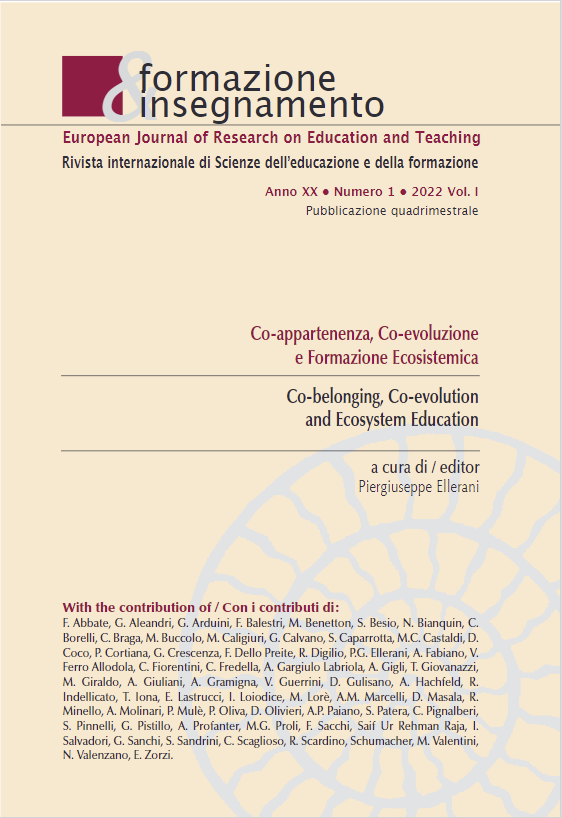Recovery, Resilience and Pedagogy to Contrast Poverty: VIVRE Project as an Em-blematic Case
DOI:
https://doi.org/10.7346/-fei-XX-01-22_03Keywords:
Pedagogy, Poverty, Resilience, Ecological transitionAbstract
Our world is characterized by complexity, uncertainty and rapid changes. In Italy, the pandemic crisis amplified those characteristics as it hit a country that was already fragile from an economic, social and environmental point of view. Environmental degradation, climatic emergency, inequalities, poverty constitute «systemic» educational challenges for humanity. These require an urgent change in the dominant socio-economic model as well as in the transformation of both the ways of thinking and acting. These challenges demand an in-depth review of policies and lifestyles. Sustainable education is well suited for this task and can contribute as it focuses on human training in its relation with the challenges posed by global problems. The project VIVRE: VIVability, Resilience, Education to contrast poverty of the Catholic University of the Sacred Heart can promote reflection on the topic of combating poverty of families within the horizon of an integral and sustainable human development.
Downloads
Published
How to Cite
Issue
Section
License
Copyright (c) 2022 Caterina Braga

This work is licensed under a Creative Commons Attribution 4.0 International License.
Formazione & insegnamento is distributed under Attribution 4.0 International (CC BY 4.0).
For further details, please refer to our Repository & Archiving Policy, as well as our Copyright & Licensing Terms.





